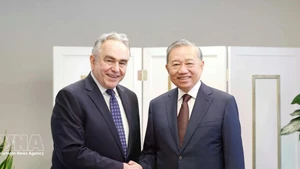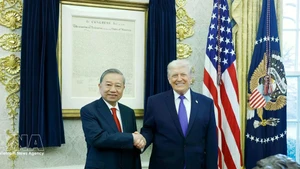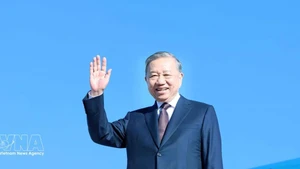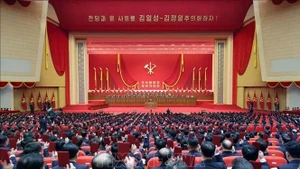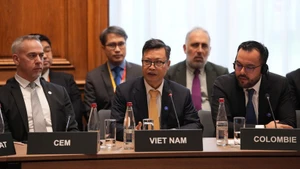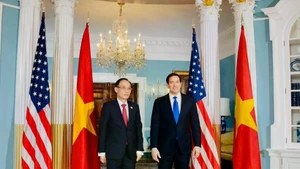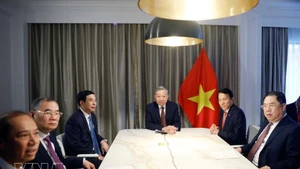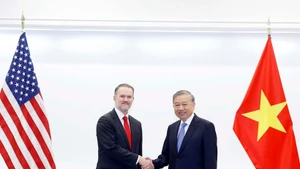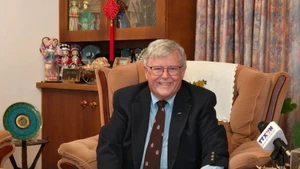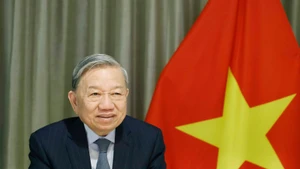Cuong affirmed that promoting gender equality and empowering women is the consistent policy of the Vietnamese Party and State, as stipulated in the Constitution and laws. The Vietnamese NA passed many important laws such as the Law on Gender Equality and the Law on Election of Deputies to the NA and People's Councils to protect and promote the empowerment of women, and encourage women's participation in political and socio-economic activities. Bills submitted to the legislature for consideration and approval must all have gender impact assessments.
The Vietnamese NA Standing Committee provided close guidance on enhancing skills training for female candidates joining in election campaigns, as well as for female NA deputies after they are elected. It also raised public awareness of women’s role in the NA, he said.
Secretaries-General at the event were impressed by the figures showing the progress of gender equality in the Vietnamese legislature in recent years, with 24.2% of female deputies in the 13th legislature (2011-2016), 27.31% in the 14th legislature (2016-2021) and 30.26% in the 15th legislature (2021-2026).
The Vietnamese NA currently ranks 64th in terms of the percentage of female deputies according to the February 2023 Global Data on National Parliaments released by the Inter-Parliamentary Union (IPU).
The delegates were also impressed by the fact that the Vietnamese legislature had a female Chairwoman during its 14th tenure, as well as the activities of its female deputies.
Cuong suggested that ASGP produce a report summarising experience and recommendations while the IPU adopt resolutions, reports or statements regarding gender equality in parliaments. Based on that, parliaments commit to specific actions for implementation.
He called for promoting inter-parliamentary cooperation and collaboration between member countries' parliaments and UN organisations and international forums on women to better protect women's rights. Progressive countries in gender equality should strengthen their sharing of experience with other countries in this field.
The IPU was urged to enhance skills training for core female parliamentarians who will later play an integral role in training counterparts in their own countries.
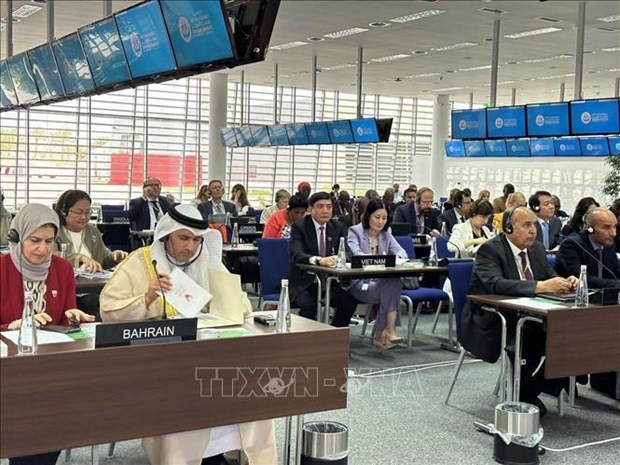
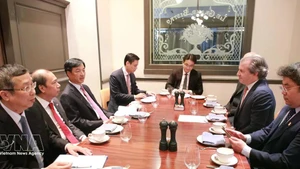
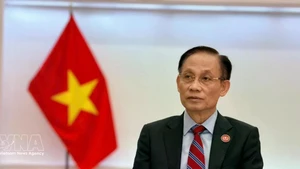
![[In pictures] Party General Secretary To Lam meets US President Donald Trump](https://en-cdn.nhandan.vn/images/dcd63867a0eed4c7753eb4bfb346593abc1ce710dfab8ad1b9aebd75ea6bf930b2ea13e4664779d689ba40aadd80f76d5d05d1208720fd7b0d811ace3a3297321c78cf738400e136e3f2d8790b24d43646e46edbe19517144a88f6ffb0d528f153574a7109328cc0949e4a4c16433c2ff751541639eefe4490518227264cbf8e/vna-potal-tong-bi-thu-to-lam-gap-tong-thong-hoa-ky-donald-trump-8599945.jpg.webp)
